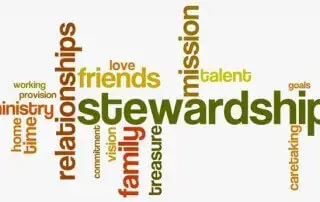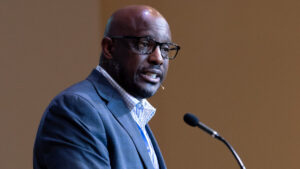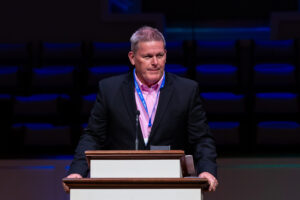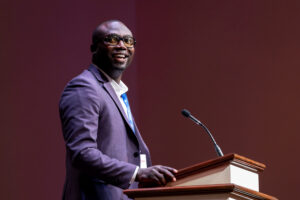When we say the word “stewardship,” our minds immediately go to giving or the tithe. In the congregation, they immediately think “Oh, no, another ‘giving sermon!’” Actually there are not enough sermons on good stewardship.
- Jesus talked about money more than anything else except the Kingdom of God.
- 11 of 39 parables talk about money.
- 1 of every 7 verses in the Gospel of Luke talk about money.
Another truth is that many ministers are not good stewards in every aspect and especially one – their own household. There are far too many occasions in which a minister becomes disabled or retires or dies with almost nothing. Below are ten steps to help be a better steward.
- Live on less than you make. Everyone has heard that, but a good rule of thumb would be to set the living expenses at about half. That leaves the other half for taxes, the tithe and savings. It isn’t easy, but there are families who have a $35,000 income who have a solid financial plan with little or no debt and savings for the future.
- Make a budget and stick to it. Actually living on a written budget can make it seem like you got a raise.
- Build an emergency fund of three to six months of expenses. Most Americans could not deal with a $1,000 emergency.
- Avoid debt. The average American credit card debt is $15,300. The average car in America has now topped $32,000 and average car loan is approaching 6-1/2 years! This much debt cripples the household financial plan.
- If you have a family, have 8-10 times your income in term life insurance. For a 40-year-old with a $50,000 income, this could be done for $60 per month and for a 49-year-old $100 per month.
- Anyone who is working should have disability insurance which is the most neglected insurance of all. Yet we are four times more likely to become disabled before we turn 65 than to die before we reach 65. For the same $50,000 income, this could be done for $22.50 per month for the 40-year-old and $29 per month for the 49-year-old.
- Contribute 10%-15% to your Church Retirement Plan through GuideStone. One-third of all Americans have no retirement savings and will live on nothing but Social Security. Start with what you can do and increase the retirement savings 1% per year until you reach 10-15%. Most of us need to contribute 15% because we started late. Even though most ministers do not plan to retire from God’s calling, there is a need for a time in which health concerns may not permit full-time ministry and full-time pay. Even better, retirement savings can permit serving in missions or a dream ministry which may not pay at all. Set priorities and find additional income to fund the priorities such as reducing the cable bill, the cell phone bill or the trips to the coffee shop or convenience store for snacks. $5 per day would be $150 per month which could result in $350,000 in 35 years at an 8% rate of return.
- Learn some basics about savings and investing. Savings is a safe place to park money while working on a goal of less than five years’ duration. Investing is looking at the long term of more than five years. Over long periods of time, good stock market mutual funds perform much better than bank rates. Investing in mutual funds means buying shares which do fluctuate in price. During a down market, value is lost but not shares. There is no actual loss unless you sell the shares. The down cycle is an excellent time to buy while the shares are “on sale.”
- Learn to be a very wise shopper. Don’t think latest and greatest; think value and even used. Electronics are so reliable and the price goes down, so a very good large screen TV can be found at $400-$500 rather than the $2,000 model. Cars commonly go 150,000-200,000 miles or more so the two-year-old used car can be a great buy. Consumer Reports can help with the most reliable cars in the U.S.
- Think about your legacy. Have a will. Without a will, the state decides how your assets are divided and, in the event of the death of husband and wife, who raises your children. Leave a legacy of good stewardship you have lived out as an example.
All of us have made mistakes with money. Most of us have done things we later felt were really a dumb idea. But anyone can learn from those mistakes and go on to create a better plan and hear those words, “Well done, good and faithful servant.”
Lee Wright serves as a state missionary in the Office of LeaderCare & Church Health. He may be contacted at 334-613-2241 or via email at [email protected].






